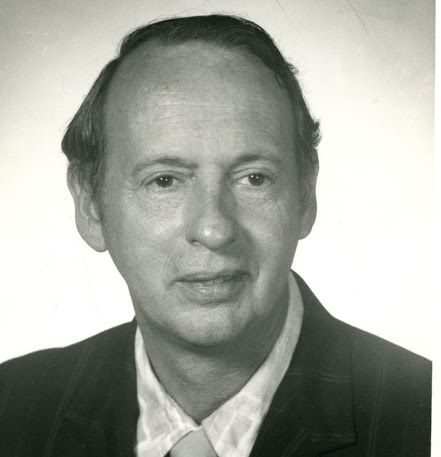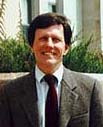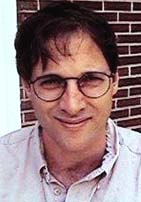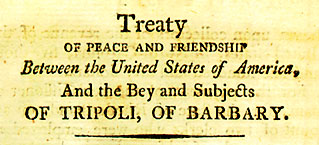About this Summer Edition

Don Vitale
Even as milestones come and go, we would be remiss if we didn't pause to observe the first anniversary of this historical journal. It was a year ago last summer that The Early America Review was launched on the Internet, an adventure occasioned with little if any fanfare. We felt then that there was a compelling need to offer users of this new medium articles and points-of-view that detailed the life and times of what is by all accounts America's most significant period in history. We felt it was important to offer such views of early America not only to the relatively small academic community of historians, but to anyone...wherever they may be... anywhere in the world...on a 24-hour basis. And, we would offer it at no charge. After one year, the Review still remains the Internet's only early American journal of fact and opinion, publishing a complete edition each time. It provides a venue, not otherwise available, for authors to inform and entertain, opening up a largely-unknown world of America to a growing cadre of readers worldwide. Although there's a certain satisfaction in realizing "mission accomplished," we are not unmindful that this is just the beginning, not the culmination, of the adventure embarked on twelve months ago.
Bryan Lebeau
An author who made his debut in our premiere issue last summer returns again-- this time with a wonderfully-researched article on counterfeit death warrants from the Salem witch trials. In "The Carey Document-- On The Trail of a Salem Death Warrant," professor Bryan LeBeau (blbeau@creighton.edu) pursues a labyrinth of fraud and chicanery in the early part of this century. His story provides us with more than a few caveats when dealing with so-called "historical" documents. Author LeBeau, chairman of the history department at Creighton University, is at work completing a new book "The Story of the Salem Witch Trials," to be published later this year by Prentice Hall. He has authored and edited four books and more than 50 articles on the history of religion in early America. He also currently serves as director of Creighton University's Center for the Study of Religion and Society.
David Ferro
It would hardly occur to most of us that science ever needed publicizing. One assumes that "Science" burst upon the scene during America's salad years and was immediately embraced by the popular culture of the time. Not so, says author-researcher David Ferro (dferro@slu.tr.unisys.com). In his paper, "Promoting Science Through America's Colonial Press", Ferro shows us how the colonial press in early 18th century America was used to promote a burgeoning science into the colonial consciousness.
The impetus for such commercialization was spearheaded by none other than that most celebrated of all scientist-inventors, Benjamin Franklin. Ferro's article explores the role played by Franklin's newspaper, the Pennsylvania Gazette, in promoting Franklin's varied projects and those of others of this period.
Ferro's paper was derived from his Master's Thesis "Science and the Press: Nascent Institutions in Colonial America," for Science and Technology Studies at Virginia Tech. He is currently serving in an engineering and anthropological capacity in the Natural Language Group of Unisys Corporation.

James P. Pierce
What does an American icon who is a legendary folk hero do when he reaches his mid-seventies?
If he's Daniel Boone, he goes hunting. At least, that's what the record shows in a fascinating sketch entitled, "Daniel Boone's Last Hunt," by prolific author James P. Pierce. His article in the spring issue of the Review gave readers a look at the dark side of frontier figure Lewis Wetzel.
In his sketch on Daniel Boone Mr. Pierce describes how the illustrious man of the frontier by 1810 had already moved on to Missouri. A few of his old friends from the Kentucky frontier visited Boone's farm and, according to Pierce, "they, along with some sons and nephews and at least one slave" travelled up the Missouri River to the Yellowstone. "They were gone for six months," recounts Pierce, "and they came back with the most profitable catch that Boone had ever experienced."
A German language, math and chemistry instructor at Skagit Valley Community College in Mt. Vernon, Washington, Pierce (jpierce@sos.net) tells us he has "a particular interest in pre-1800 German-American culture and German Americans on the frontier as it was before 1800." We understand he is presently in the preliminary stages of a number of studies, including that of German-American long-hunter, Michael Stoner. Quite possibly another sketch that may come to life in the pages of The Review.
Was James Madison the Father of the Constitution? Or its Grandfather? And, depending on the answer....why?

Bruce Kauffmann
Bruce Kauffmann (bkauffmann@aga.com) makes life easy for our readers as he fills in all the details with his penetrating and highly-readable article, "James Madison, 'Godfather' of the Constitution." Madison, Kauffmann contends, was "the first-among-equals....the driving force....the number one-idea man" in creating the Constitution.
Readers remember Kauffmann, a professional writer-historian who writes "Bruce's History lessons," for his article in our fall '96 issue, "The Whiskey Rebellion: Taxing 'Sin'-- Then and Now." In the margin notes of his current story, Kauffmann attributes part of the strength of the Constitution to Madison who "worked so hard to create a 'Republican' government, in which the rights of the minorities were protected against the unbridled passions of the democratic majorities."
A resident of Alexandria, Virginia, Kauffmann is a former speechwriter, journalist and head writer for the Dan Rather CBS News Radio. He is the recipient of a Writer's Guild of America Award and the Hal Terkel Memorial News Writing Award for general excellence.
A journal of fact and opinion, if it is nothing else, must open its pages to a variety of points of view. With that declaration we are pleased that Jim Walker (zardoz@nobeliefs.com) has taken up the challenge with his Point-of-View article on the Treaty of Tripoli. According to Mr. Walker, the treaty America entered into with the Bey of Tripoli in 1797 flatly states that the U.S. government was not founded on the Christian religion.
Walker specifically points to Article 11 of the Treaty for documentation. Readers may study that part of an original printing of the Treaty together with its final page. The Treaty was signed in November of 1796 at the end of Washington's last term as president, and later approved by the Senate and signed by President Adams in June of 1797.
The bicentennial anniversary of the ratification of the Treaty of Tripoli was observed on June 10, 1997.
Mr. Walker's article presents a cogent argument for his position, complete with an extensive bibliography. Should there be a dissenting view, please know that the pages of the Review are open to any reader who would like to rebut Mr. Walker's position.
Early Americans did not have passbook savings accounts, credit cards or mortgages. How, then, did they survive?

Dr. Robert E. Wright
"Commercial Banking in Colonial America" describes the similarities and differences between then and now. Authored by Dr. Robert E. Wright (ALEXANDE@VM.TEMPLE.EDU), the article is part of a greater work currently in process. Dr. Wright serves as an assistant editor on the Biographical Dictionary of Early Pennsylvania Legislators Project. He also teaches at Temple University and Peirce College in Philadelphia.
We commend Dr. Wright on forging an otherwise arcane subject into one that is eminently hospitable. As such, I found his treatise informative and of interest. I hope you do also.
As we are wont to do at this stage of the proceedings, I ask that those of you who feel you have a manuscript of interest to our readers kindly send me a query regarding same. In every case, I promise a prompt response.

